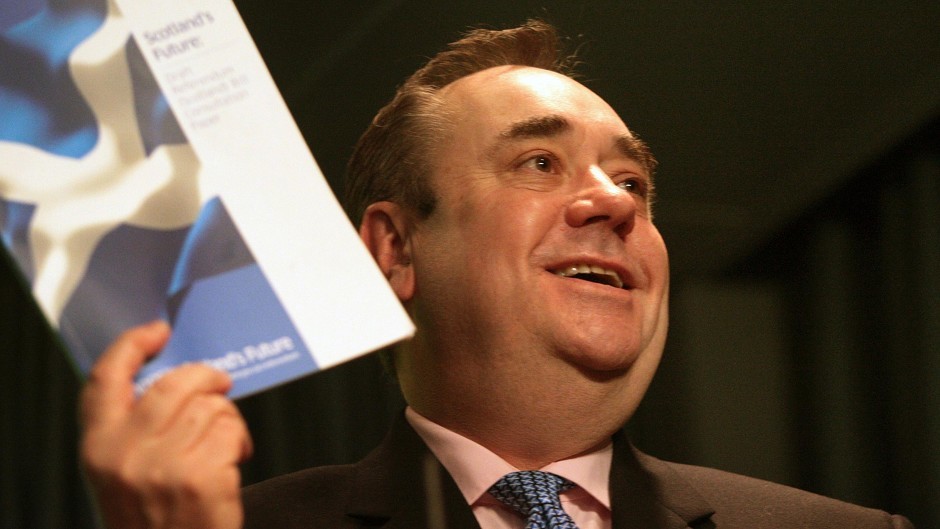Alex Salmond has claimed Scottish independence will help close the gap in inequality that exists across the UK.
Allowing Scotland to develop its own economy will also create a counterweight to London’s expansion at the expense of other regions, he said.
The first minister laid out the case for a Yes vote to an English audience at the Festival of Business in Liverpool yesterday.
The UK has the “highest levels of regional inequality” in the European Union with London’s economic growth twice that of the rest of the country since 2007, he said.
Last year the Institute of Public Policy for the Regions published a report that found spending on major public infrastructure amounted to £2,600 per head in London, compared to £99 in north-west England, and £5 in north-east England.
Independence will allow Scotland to tackle the problems of economic growth head on, Mr Salmond said.
“We know that tackling these issues isn’t straightforward – building a better country isn’t the work of a day,” he said.
“Nothing is going to be handed to us on a plate. Independence isn’t about waking up one day with three taps labelled whisky, oil and water.
“It’s about working hard, and taking the right decisions, so that over time we can build a fairer and more prosperous country.
“Achieving that will make Scotland a better place for investment and create a wealthier, more successful trading partner. That in itself, will benefit businesses across these islands.
“But independence will do more – it will create an economic counterweight to London and the south-east, changing the economic centre of gravity of these islands.”
Scottish Liberal Democrat leader Willie Rennie said: “People in Liverpool will not be taken in by the first minister’s warm words. They understand full well that his entire economic plan is based on undercutting the north of England on corporation tax in a policy gamble that would cut tax revenues and public sector jobs.
“The SNP’s corporation tax policy is nothing more than a cross-border economic raid. It is designed to strip investment out of England.”
